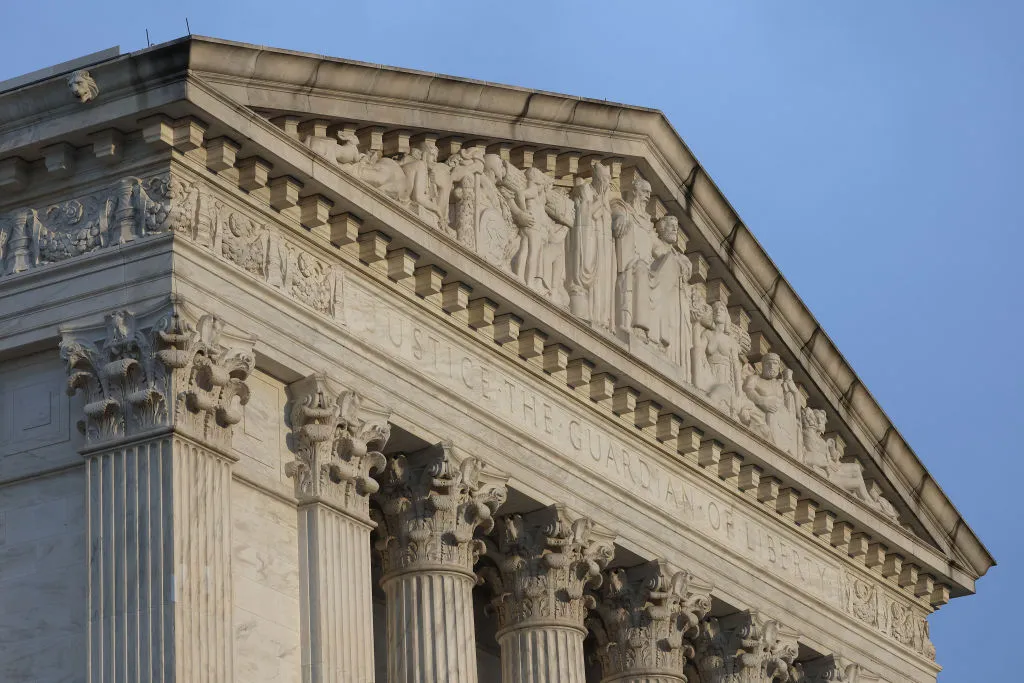The Supreme Court docket on Thursday turned down a request from a tech business group to quickly bar Mississippi from imposing a state legislation that restricts entry by younger individuals to social media. In a brief unsigned order, the justices allowed the state to proceed to implement the legislation in opposition to main social media websites, together with Fb, Instagram, Snapchat, X, Reddit, and YouTube, whereas litigation continues within the decrease courts.
Justice Brett Kavanaugh agreed with the choice to depart the legislation in place, however he prompt that “the Mississippi legislation is probably going unconstitutional.”
Thursday’s order got here in a dispute over a Mississippi legislation often called House Bill 1126. Enacted in 2024 after a Mississippi teen turned the sufferer of sextortion on Instagram and died by suicide, the legislation requires younger individuals to acquire their dad and mom’ consent earlier than they’ll create social-media accounts. For his or her half, social-media websites should confirm the ages of their customers and make efforts to guard younger individuals from being uncovered to dangerous materials. If the websites don’t adjust to these necessities, they’ll face each civil penalties of as much as $10,000 per violation and felony penalties.
NetChoice, a tech business group that represents social-media firms like YouTube and Meta (which owns Fb and Instagram) in addition to web gross sales giants like Amazon and Airbnb, went to federal courtroom in Mississippi, arguing that the legislation violates the First Modification.
U.S. District Choose Halil Suleyman Ozerden agreed and issued an order that quickly prohibited the state from imposing the restrictions in opposition to a number of of NetChoice’s members. Though Ozerden acknowledged that the state could have a “compelling curiosity in safeguarding the bodily and psychological wellbeing of minors on-line,” he stated the legislation doubtless nonetheless runs afoul of the First Modification as a result of it bars younger individuals from gaining any entry to social media until they’ll get hold of their dad and mom’ consent, when it might obtain the state’s aim with a much less restrictive resolution. “NetChoice,” he wrote “has introduced proof that minors’ dad and mom and guardians have already got many instruments at their disposal to watch and management their kids’s on-line entry.”
Mississippi went to the U.S. Court docket of Appeals for the fifth Circuit, which in a brief order on July 17 agreed to quickly pause Ozerden’s order whereas the state appeals.
NetChoice then came to the Supreme Court on July 21, asking the justices to step in. It instructed the courtroom that “Mississippi shouldn’t be allowed to rework the web earlier than even one decide has defined why Mississippi’s effort to stifle customers’ entry to protected expression complies with the First Modification and why the judicial consensus” amongst courts which have “acknowledged the grave First Modification issues with legal guidelines like” H.B. 1126 “is unsuitable.”
In her response, filed on July 30, Mississippi Legal professional Normal Lynn Fitch urged the court to permit the state to implement the restrictions whereas litigation strikes ahead. Though the legislation has been in impact for different social-media websites for greater than a yr, Fitch wrote, NetChoice “has not recognized anybody with a criticism about accessing any platform, one occasion of a platform censoring speech, or any platform that has shut down or had any issue complying with” the restrictions.
On Thursday, the justices allowed the legislation to stay in place. As is usually the case for choices issued on its emergency docket, the courtroom didn’t clarify its reasoning.
In a three-paragraph concurring opinion, Kavanaugh wrote that in his view, NetChoice had “demonstrated that it’s more likely to succeed on the deserves—specifically, that enforcement of the Mississippi legislation would doubtless violate its members’ First Modification rights below this Court docket’s precedents.” However, he continued, NetChoice had not adequately proven that the hurt to its members from enforcement of the legislation whereas litigation continues outweighs the advantages to the state.
Disclosure: Please observe that counsel of file for NetChoice is Scott Keller, who’s married to Sarah Isgur, a senior editor at The Dispatch. Dispatch Media, Inc. owns SCOTUSblog.
Posted in Emergency appeals and applications, Featured
Circumstances: NetChoice, LLC v. Fitch
Advisable Quotation:
Amy Howe,
Supreme Court docket permits restrictions on kids’s entry to social media to stay in place,
SCOTUSblog (Aug. 14, 2025, 3:57 PM),
https://www.scotusblog.com/2025/08/supreme-court-allows-mississippi-restrictions-on-childrens-social-media-access-to-remain-in-place/
